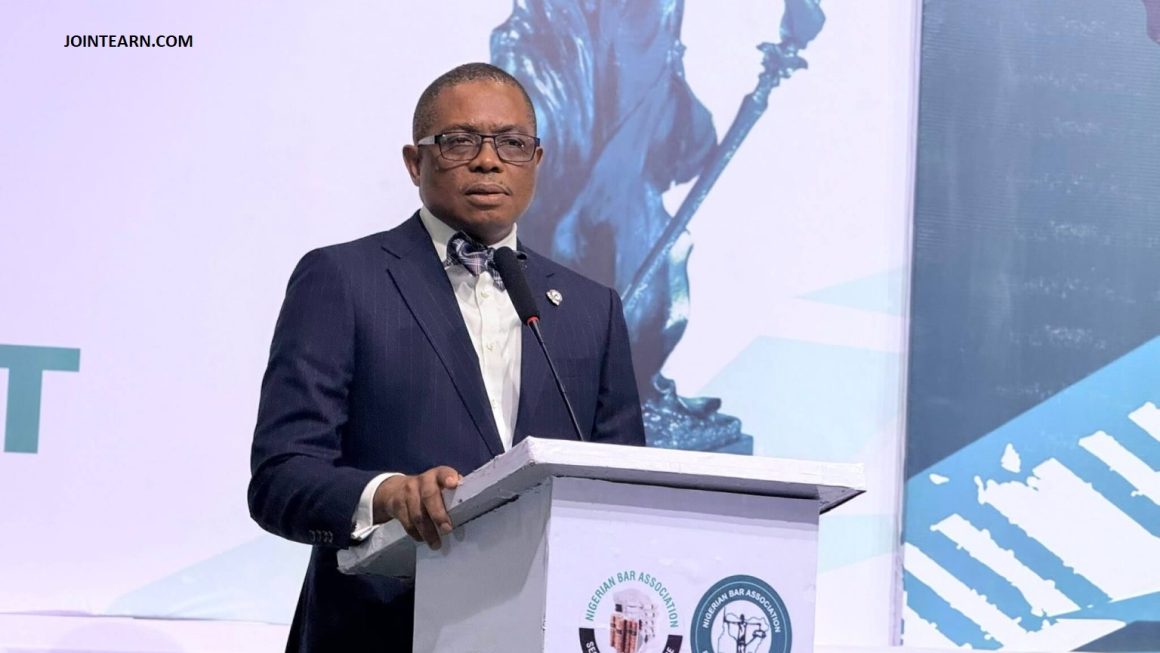As Nigeria marked Workers’ Day on May 1, 2025, the Nigeria Labour Congress (NLC) used the occasion to intensify its demand for the extension of the retirement age for civil servants across all sectors of the public service. The NLC is proposing a uniform retirement age of 65 years and a service tenure of 40 years, whichever comes first, as a way to ensure fairness, retain experienced personnel, and reward long-serving workers.
The NLC made this known during its official address at the 2025 May Day rally held at Eagle Square, Abuja, where thousands of workers, union leaders, civil society representatives, and government officials gathered to commemorate the annual celebration of labour and workers’ rights.
In his keynote address, the NLC President, Comrade Joe Ajaero, emphasized the need to harmonize the retirement age across all sectors of the civil service, describing the current discrepancies as discriminatory and demoralizing for many categories of workers.
A Call for Fairness and Equity
At present, different sectors within the Nigerian public service operate under varied retirement policies. For example, university lecturers, judicial officers, and some medical professionals enjoy extended retirement ages—often up to 65 or even 70 years—while the majority of core civil servants are required to retire at 60 years or after 35 years of service, whichever comes first.
Comrade Ajaero argued that this policy disparity has become a source of discontent among workers and urged the federal and state governments to standardize the retirement age to reflect equity, especially in light of economic hardship, the increasing life expectancy, and the need to retain skilled workers.
“We can no longer continue to treat workers in the same public service with different standards. It is unjust that some workers retire at 60 while others remain till 65 or 70. This discrimination must end,” Ajaero declared. “We are calling on the government to extend the retirement age to 65 years and the length of service to 40 years for all workers in the civil service, regardless of cadre or ministry.”
The Economic and Social Context
The NLC’s demand comes at a time when the Nigerian workforce is facing increasing challenges, including inflation, stagnant wages, job insecurity, and rising cost of living. Many workers, especially those nearing retirement, express concerns about their economic future, with pensions often delayed or insufficient to meet basic needs.
Comrade Ajaero linked the proposal to extend the retirement age with broader efforts to ensure social security for workers and retirees. He argued that giving workers more time in service would not only allow them to better prepare for retirement but also help the government retain seasoned professionals who can contribute to national development.
“With the right policies in place, Nigeria can benefit from the experience and wisdom of older workers, while also planning adequately for the onboarding of younger professionals,” Ajaero noted.
Labour’s Broader Agenda
Beyond the issue of retirement age, the NLC’s Workers’ Day address touched on a number of other critical issues affecting the Nigerian workforce. The union called for:
-
Immediate implementation of a new minimum wage that reflects the realities of inflation and cost of living.
-
Payment of arrears and backlogs of salaries owed to workers in various states.
-
Strengthening of collective bargaining rights and protection of union activities in both public and private sectors.
-
A halt to the privatization of key public assets, which the NLC argues has led to job losses and deterioration of public services.
The union reiterated its readiness to engage in dialogue with the federal government but warned that if these issues are not addressed, industrial action could become inevitable in the coming months.
Government’s Response
In his address at the rally, the Minister of Labour and Employment, Dr. Chris Ngige, acknowledged the NLC’s demands and assured workers that the federal government is committed to improving the welfare of its workforce. He noted that the proposal to harmonize retirement ages is under review and that consultations with relevant stakeholders would be ongoing.
“We recognize the concerns raised by the NLC regarding disparities in retirement age and service years. The government is listening, and we are working on creating a more inclusive policy framework,” Dr. Ngige said.
He also assured that negotiations on a revised national minimum wage would be concluded before the end of the year, promising that workers’ welfare remains a top priority for the administration.
Public Reactions
Reactions to the NLC’s call have been mixed. While many workers welcomed the proposal, some analysts have questioned whether the civil service can sustain a longer retirement age, especially in the face of rising unemployment among the youth. Critics argue that extending the retirement age could limit employment opportunities for younger Nigerians and potentially create a bottleneck in career progression within the public sector.
In response to these concerns, Comrade Ajaero argued that the solution lies not in forcing older workers into early retirement but in expanding employment opportunities through economic growth and better resource management.
“Young people are not unemployed because older workers are still in service. They are unemployed because the economy is not growing fast enough to create new jobs. We must tackle the root causes, not the symptoms,” he said.
Looking Ahead
As the debate continues, it is clear that the issue of retirement age has now taken center stage in Nigeria’s labour discourse. The NLC has vowed to push forward with its demands through legislative lobbying, public awareness, and continued engagement with policymakers.
The 2025 Workers’ Day rally has once again highlighted the power of collective action and the importance of organized labour in shaping public policy. For now, Nigerian workers await concrete action from the government that reflects not just promises, but real, measurable change.
The call for a unified retirement age may mark the beginning of a broader conversation about restructuring Nigeria’s civil service to be more inclusive, equitable, and forward-thinking—one that values experience while creating space for the next generation.












